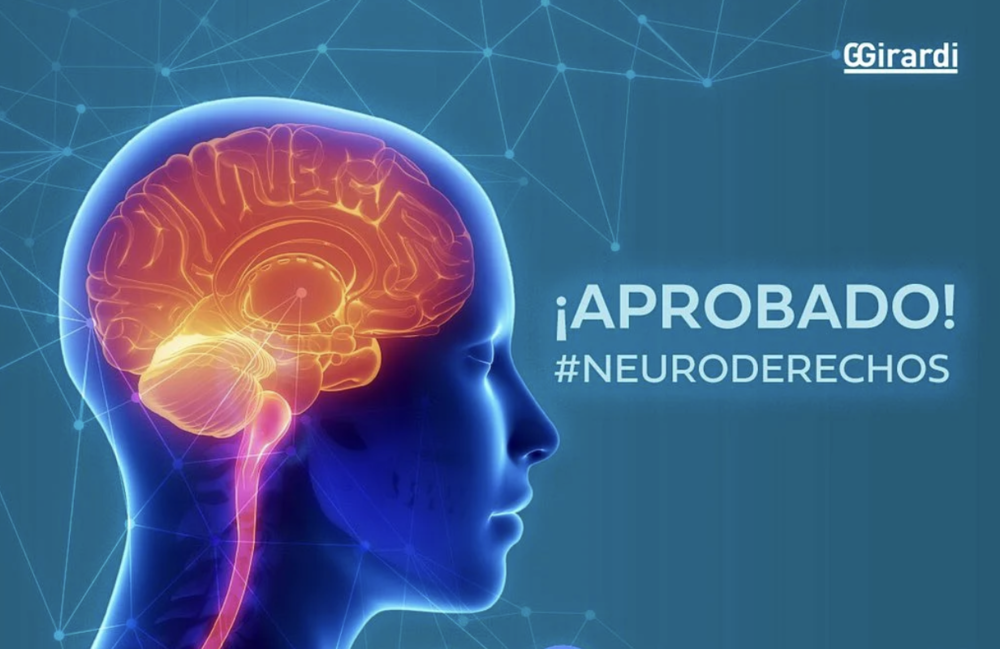
NEWS
最新消息
Chile is the first country to pass neurorights law
- 分类:最新消息
- 作者:华讯知识产权
- 来源:
- 发布时间:2022-04-15 16:53
- 访问量:
【概要描述】On October 25th, 2021, the Senate of the Republic of Chile unanimously approved a bill to amend the constitution to protect brain rights or “neurorights”. Chile became the first nation to have a constitution in force that explicitly addresses the challenges of emerging neurotechnologies.
Chile is the first country to pass neurorights law
【概要描述】On October 25th, 2021, the Senate of the Republic of Chile unanimously approved a bill to amend the constitution to protect brain rights or “neurorights”. Chile became the first nation to have a constitution in force that explicitly addresses the challenges of emerging neurotechnologies.
- 分类:最新消息
- 作者:华讯知识产权
- 来源:
- 发布时间:2022-04-15 16:53
- 访问量:

On October 25th, 2021, the Senate of the Republic of Chile unanimously approved a bill to amend the constitution to protect brain rights or “neurorights”. Chile became the first nation to have a constitution in force that explicitly addresses the challenges of emerging neurotechnologies.
The amendment to the Chilean Constitution aims at defining mental identity for the first time in history as a non-manipulable right to protect it against technological advancements in neuroscience and artificial intelligence. The law is to give personal brain data the same status as an organ, so that it cannot be bought or sold, trafficked or manipulated. The range of data protection includes the right to mental privacy, personal identity, the free will of thought, equitable access to technologies that increase human capacities, and protection against discrimination.
The modification of the constitution may be thought of as an important historic event and milestone. It points out that emerging neurotechnologies have the potential to gather data from our brains, or even to manipulate them, thereby interfering with our thought processes and behavior.
Chile is not the only country concerned about the legal vacuum surrounding neurotechnologies. Spain, the US, France, and, more recently, Argentina have begun to study the issue. But the task is complex. Legislation must be broad enough to adapt to the evolution of new technologies while ensuring the protection of citizens.
Chile is way ahead of the curve in addressing the human rights challenges. However, it is concerned to define the extent that neuroscience is at the frontier between brain activity and what creates an individual’s own identity. The legislation to regulate neuroscience also raises consent and access issues. Can people make an informed decision and know exactly how the data will be used before granting permission to an application that uses data on their habits? Can everyone benefit from the advances generated by neurotechnologies, and they do not become reserved for a minority? And how can we ensure equitable access to this technology?
It is the first step in a legislative ecosystem that will regulate artificial intelligence and neuro-technologies. Chile’s law establishes that scientific and technological development must be at the service of people and be carried out with respect for life and physical and mental integrity. But how the legal texts influence the development of neuro-technologies and how far it goes are still uncertain.


美国联邦巡回上诉法院表示娇生公司 全球畅销精神分裂症药物的专利可能无效

注射用醋酸地加瑞克专利无效口审将于本月底进行

外观专利如何进行海外布局?










